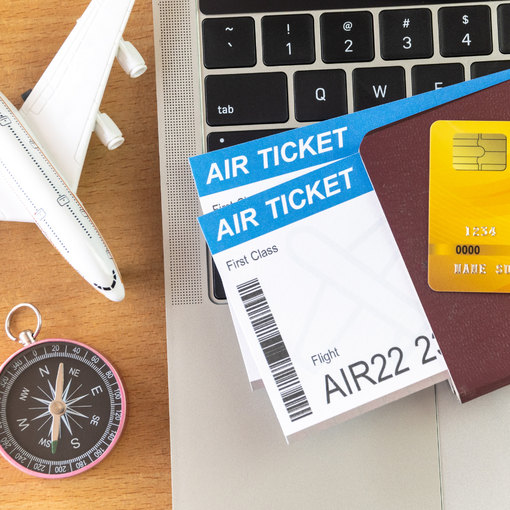
- Five minutes read
Travel Payment Innovation: How risk management solutions became a catalyst for travel merchants
Paysafe’s latest collaboration with Mastercard via its T&E Risk Monitor tool will focus on delivering an innovative risk management solution set to improve working relationships between merchant acquirers and the travel sector.
Acquirers face a challenging financial burden due to the high-risk nature of working with travel merchants. As an industry, travel is now deemed to be a high-risk sector for card acquirers because most transactions are made well in advance of when travel occurs, creating a lag in fulfillment between when the customer pays and when the merchant delivers. This is referred to as deferred delivery and produces credit risk for an acquirer.
Payments, when done right, can be a powerful revenue accelerator for the travel industry. But how can travel merchants truly optimize their payments strategy to limit their exposure to chargebacks and fraud risks, while strengthening relationships with acquirers? One way the payments industry is looking to tackle this issue is by leveraging sophisticated data insights that provide customers with an understanding of their level of risk.
Throughout this article, we’ll explore how progressive approaches to financial risk mitigation, such as Mastercard’s T&E Risk Monitor and Paysafe’s bespoke travel solution, are shaping the future of travel payments.
The nuances of payment processing for the travel industry
It's been well-documented that the travel sector has been hit hard over the last two years. In fact, net loss for travel and tourism reached almost $4.5 trillion in 2020, according to a report from the World Travel and Tourism Council. Fast forward to 2022, when in the first half of the year, the travel industry encountered widespread disruption with thousands of flight cancellations and delays stimulating an influx of passenger refund requests.
But there are reasons to be optimistic, insight from Mastercard’s Economic Institute shows positive signs, with business flight bookings already exceeding 2019 levels. The question is, what lessons have been learned and how can the sector prepare for the future?
In situations where the customer doesn’t receive what they have paid for, and a travel company cannot or will not refund, then card scheme rules guarantee that debit/credit card holders can recover their money from the acquirer by initiating a chargeback. Acquirers in turn attempt to calculate this chargeback risk, which is referred to as exposure. The travel sector has historically experienced challenges in managing this chargeback exposure, which is one of the main reasons acquirers struggle to open merchant accounts.
To offset this risk, acquirers often require substantial collateral from their merchant customers, often in the form of cash, also known as a holdback or reserve, which they use to offset incoming chargebacks. But this also puts merchants at a disadvantage as holdbacks can be extremely inflexible and large sums of money belonging to the travel company can be withheld for long periods of time impacting liquidity and creating uncertainty.
Progressive use of data and safeguarding measures seek to break this cycle. By providing clarity over volume and trip status in real-time, acquirers can gain assurance which leads them to take smaller funds for less time from merchants, and only when required rather than in reaction to perceived risk.
Resetting the relationship between travel merchants and acquirers
Due to the high-risk nature of travel payments, a large number of acquirers have been pulling away from servicing the travel sector. Long settlement periods between reservation and service delivery make it difficult to obtain information, leaving acquirers unaware of potential merchant collapses and when macro events occur, any residual appetite quickly evaporates, often leaving merchants in a precarious position. In response, major card brands have been working with acquirers to develop a suite of risk management solutions that provide actionable insights around important financial and exposure data.
Last year Mastercard released its T&E Risk Monitor through a partnership with Actuary, a tool that provides acquirers with critical risk insights by combining booking and payment statuses across travel portfolios, with the aim of increasing acquirer confidence when releasing funds to delayed delivery merchants. Paysafe has partnered with Mastercard to integrate this service to further enhance its current safeguarding model, which has been tailored to support the travel sector. The collaborative global partnership will provide greater end-to-end visibility into merchant payments to help acquirers understand their financial risk while supporting greater liquidity and stability for travel merchants.
This type of collaboration helps to reduce the risk of disruption in the industry which ultimately benefits end consumers. As Johan Gerber, Executive Vice President, Security and Cyber Innovation at Mastercard, comments: “It is essential travel industry acquirers have the insights they need to assess and manage their financial risk. The T&E Risk Monitor enables transparency of the risk exposure for both the acquirer as well as the travel service company and facilitates a more proactive approach. This ultimately reduces the risk of disruption for consumers.”
The collaboration has already produced favorable results with Paysafe’s custom risk product for luxury cruise line Virgin Voyages, which leverages the T&E Risk Monitor to provide the merchant with full transparency of their exposure horizon ensuring effective credit risk management.
Working with the right payments partner
Travel is much more complicated than many other sectors for acquirers, especially considering the complexities of future delivery sales. Acquirers which specialize in travel are more likely to offer a consistent risk approach because they have developed solutions that are specifically tailored to serve this segment.
Working closely with travel merchants to fully understand the associated business model, strengths, weaknesses, and overall risk profile of each individual business is imperative. The best acquirers not only understand how to work with their clients during the good times, but they also know when to adapt their offerings to provide support as merchants navigate challenging climates.
To learn more about how Paysafe’s safeguarding model is supporting the growth of the travel industry, visit our website here.




